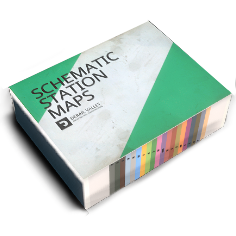Body Damage/ja: Difference between revisions
Updating to match new version of source page |
Updating to match new version of source page |
||
| Line 22: | Line 22: | ||
<div lang="en" dir="ltr" class="mw-content-ltr"> | <div lang="en" dir="ltr" class="mw-content-ltr"> | ||
Body damage can be forced manually in {{pll|Sandbox|sandbox mode}} using the {{pll|Comms Radio Cheat Modes|comms radio damage mode}}. | Body damage can be forced manually in {{pll|Sandbox|sandbox mode}} using the {{pll|Comms Radio Cheat Modes|comms radio damage mode}}. | ||
</div> | |||
<div lang="en" dir="ltr" class="mw-content-ltr"> | |||
Damaged vehicle bodies can be {{pll|Servicing Overview|serviced}}. | |||
</div> | </div> | ||
[[Category:Servicing|4]] | [[Category:Servicing|4]] | ||
Revision as of 14:40, 12 March 2025
鉄道車両の車体は、衝突、荒い入換え作業、重大な動力伝達システムの故障による部品の飛散、火事、爆発によって、損傷を受ける可能性があります。車体の損傷により、電気システムの故障が発生し、ライト、ワイパー、その他の電気機能が機能しなくなる可能性があります。ただそれ以外には、車両の移動能力には影響はありません。
Most common situations in which collision damage occurs is due to derailing, distracted shunting, badly set up switches and wheelslide. Body damage can also be caused by various powertrain failures that cause parts to fly apart, fire and even explosions.
Damage to a vehicle's body may result in failure of various accessories, such as windows, lights and compressors. It doesn't otherwise affect the moving capability of a vehicle, however.
To ensure safe contact between vehicles, it is recommended not to collide at more than 5 km/h. To help anticipate contact better, there are proximity sensor gadgets.
Body damage of a vehicle is displayed on its ID plate.
Body damage can be forced manually in sandbox mode using the comms radio damage mode.
Damaged vehicle bodies can be serviced.
